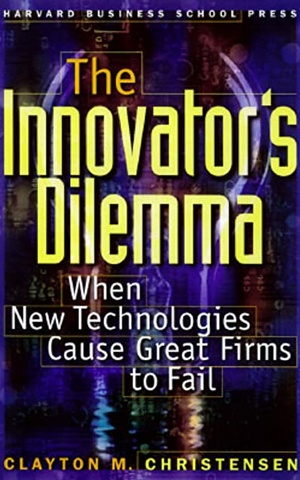
The Innovator's Dilemma: When New Technologies Cause Great Firms to Fail
- Book
- 1997
- #Innovation #Business
Harvard professor Clayton M. Christensen says outstanding companies can do everything right and still lose their market leadership -- or worse, disappear completely. And he not only...
Show More
Number of Pages: 252
ISBN: 0875845851
ISBN-13: 9780875845852
Mentions
See All- Curated in Best of Business
Bill Gurley @BillGurley
·
Apr 9, 2017
- Curated in Books for founding a start-up
“It’s fantastic,” Gurley said. “It’s really the core essence of why start-ups have an advantage. Products that are able to be disruptive get over-designed. They get feature-rich, they get complex, they get heavy.
He added that “if you can design a product that exploits a desire of a subset of the customer base that doesn’t want that complexity, but wants this feature, you can bust in. I’ve seen that over, and over, and over.”